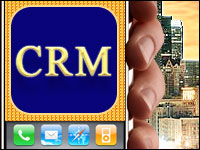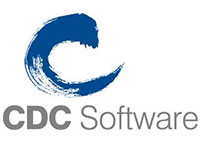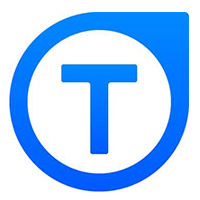
It is not hard at all to find an example of a mobile B2C CRM app — all one has to do is fire up the nearest smartphone.
But B2B mobile CRM? That is a qualified yes — assuming one is willing to limit one’s thinking to salesforce automation as a B2B discipline. To be sure, there is a case to be made for that argument — consider mobile CRM apps in the pharmaceutical industry, for example.
When, though, will B2B mobile CRM expand beyond this traditional deployment? Mobile B2C CRM provides a number of productivity and customer service advantages to companies that make this investment. Arguably, those same attributes will translate into the B2B realm.
“Without a doubt, most companies are still in the employee phase — or SFA phase — of B2B mobile CRM,” Yankee Group analyst Sheryl Kingstone told CRM Buyer.
There is an interest in creating B2B mobile CRM apps that go beyond mere SFA, she said, citing Yankee surveys on the subject. Certain industries, such as the telecom space, are almost tailor-made for such an app.
“Small businesses, especially, rely on their telco services,” said Kingstone, “and the ability to manage, to change capacity, or add new features from a mobile app would be very welcome.”
The Proof-of-Concept Stage
These are actually some of the arguments used to persuade prospective clients.
“We have done proof of concepts for businesses interested in pushing mobile CRM beyond typical sales force automation apps,” Mike Snyder, principal at Sonoma Partners, told CRM Buyer.
As it happens, even these expanded business cases are still focused on the sales cycle, but they go beyond typical SFA features. One financial service provider, for example, asked for a proof of concept for a tablet-based application that sales people could use in the field to close sales — including signing a contract — on the spot.
“Being able to execute a complete legal contract from a mobile device is still more theory than reality, but we are getting closer,” said Snyder.
It is already close enough to touch for sufficiently motivated companies, he noted. The infrastructure is in place for the most part. “It is just a matter of the company deciding to pull the trigger.”
The Specter of the 99-Cent App
So what would it take for a company to pull the trigger, as Snyder put it? One major challenge that a lot of companies have trouble getting past is the costs associated with a B2B mobile CRM app.
“I think companies have been infected with the 99-cent app price point. It is not that they think these projects will be minuscule in effort or cost, but there is an unfortunate aura associated with mobile — namely mobile equals cheap,” Snyder pointed out.
Because B2B mobile CRM usually involves a smaller universe of users, the assumption is the cost should be cheaper. Again, it’s not logical, he said, and when pressed, executives probably would never use those terms. But it appears that some of that thinking has made an impression at a certain level.
Interest and Inertia
Companies would go forward with a B2B mobile implementation if there were a clear need for it, Kingstone said. In the case of mobile B2C CRM, companies almost have to implement an application, if only to stay competitive.
“There is definitely interest in creating dedicated mobile apps for business partners and customers,” Kingstone continued, noting that Yankee Group surveys have found 51 percent of respondents queried interested in such an application. But those same companies are fully aware that — unlike B2C apps, which reach millions of customers — a B2B app has limited appeal.
“I do think we will see more of these apps, though,” Kingstone said, mainly because mobile computing in general has become such a fixture. If nothing else, the SFA applications are getting more robust, which leads executives to wonder how they could be expanded into other B2B areas.
One such app is currently in use by an insurance company in Asia.
“The app gets any agent the right policy and the right details on the go,” said Todd Borgie, director of U.S. business development at Deskera, the app developer.
“The CRM app also lets the agent capture customer opportunity details on the fly,” Borgie told CRM Buyer. “It has a built-in camera app that lets an agent take pictures and save it in the CRM. The app also captures various policy-related numbers and prepared quotations on the fly.”
Implementation issues typically include deployment of the app on different platforms — Android, iOS and in some cases J2ME or Symbian.
It is not seamless, Borgie acknowledged. “iOS has its own set of protocols when it comes to push deployment, while J2ME is doesn’t have a reliable app store. Nothing that Deskera can’t handle, though.”

























































Thanks for the information!
With the inevitable advancements in technology, CRM integration has become even more manageable with the introduction of apps that allow you to update data with your phone.
Apps are certainly the future of CRM integration and as a member of the GreenRope family, I highly recommend that every employee download and utilize CRM apps. With the increased ease and usage of the CRM software, apps have provided another form of communication AM ongst employees that encourages efficiency and can further increase brand awareness.
As a member of the GreenRope family, I have seen the benefits of CRM integration when data is updated instantly with mobile apps. The ease of adoption will only help to decrease the largest hurdle that CRM integration faces.